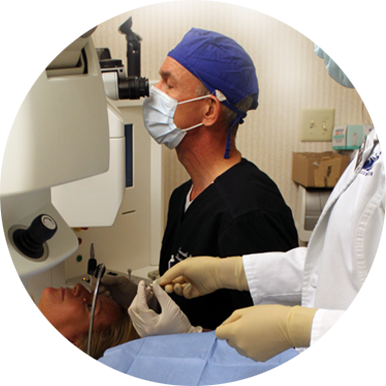The Cost of Cataract Surgery
Insurers cover most costs, but be sure you understand your options.
If you are not covered by Medicare, check with your insurance provider directly to learn more about your cataract surgery costs.
As a “medically necessary procedure,” Cataract Surgery is covered by Medicare, which pays a portion, if not all of the costs, including the surgeon’s and facility fees, the cost of a standard monofocal lens implant, and required follow up care.
You may be responsible for a co-pay or a deductible for pre-surgery office examinations, consultation and measurements for your cataract surgery. Patients are also responsible for their copay or deductible for the actual surgery itself.
You should speak in-depth with your surgeon’s billing office and your insurance provider or Medicare representative before having cataract surgery, to help you understand exactly how much is covered and how much you ultimately may need to pay out-of-pocket.

Cataract Surgery Costs Depend on Options You Choose
What are your post-surgery vision goals?
There are two primary options for cataract surgery that you will want to consider, based on your vision goals and your budget.
Cataract Surgery: Covered by Insurance.
Most costs for Basic Cataract Surgery are covered by Medicare and include a standard monofocal (or single focus) lens. Basic cataract surgery will result in better vision, but if you need glasses (distance or reading) before cataract surgery, you are likely to still need glasses after the surgery.
Advanced Cataract Surgery: May include out-of-pocket costs.
The additional out-of-pocket costs for Advanced Cataract Surgery are for extra tests, services, and advanced lenses that will dramatically improve your vision. You may not require distance or reading glasses after Advanced Cataract Surgery. Medicare and other insurance do not cover these additional costs.
To contact our office, call 585-232-2560.
For Cataract appointments ext. 2






